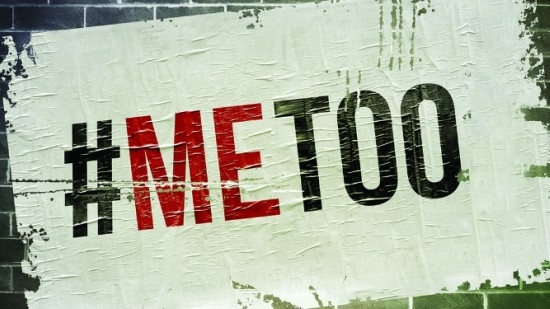
It’s been called a movement, a revolution, and an uprising. Time magazine recognized the “Silence Breakers” behind it as its 2017 Person of the Year. And, this past weekend, it was emblazoned on signs lofted by some 120,000 marchers in New York City, by people in 300 towns and cities across the United States, and by thousands of other protestors in countries around the world.
#MeToo.
As Sophie Gilbert wrote in The Atlantic recently, in essence, it’s “simply an attempt to get people to understand the prevalence of sexual harassment and assault in society. To get women, and men, to raise their hands” and share their experiences as part of a vital conversation.
Last week, St. John’s Law students, faculty, and administrators joined in this conversation when they came together for Day One Dialogues: The Power Of #MeToo, a community-raising event hosted by the Ronald H. Brown Center for Civil Rights, the Coalition for Social Justice, the Journal of Civil Rights and Economic Development, the Women's Law Society, and the Hugh L. Carey Center for Dispute Resolution.
After Dean Michael A. Simons welcomed the participants, Professor Elaine M. Chiu, director of the Ron Brown Center, introduced guest speakers William H. Ng '07 and Kelly C. Spina '07, who offered their insights as labor and employment attorneys navigating #MeToo’s impact on workplace laws, policies, and procedures.
Sharing that legal standards for handling workplace sexual harassment claims are demanding and that investigations into alleged misconduct are usually exacting and thorough, Ng and Spina noted that many claims are settled and subject to non-disclosure agreements (NDAs). Complainants, the accused, and companies often share an interest in those agreements, they asserted, adding that pending legislation that would prohibit NDAs is concerning and should be deliberated carefully. The best employers, Ng and Spina said, will have great prevention practices in place, in addition to fair reactive practices.
The participants then broke into small groups for facilitated dialogues. Josh Soares '18, president of the Coalition for Social Justice, served as a facilitator. “The #MeToo Movement has compelled me to look at my own behavior and privilege,” he says. “I have a lot to learn, and I found myself constantly learning from my peers as they shared their experiences in our group. Unfortunately, the legal profession still has the characteristics of an ‘old boys’ club,’ and it's up to our generation of lawyers to change that. Standing by and not speaking up is complicity. We need to leave our profession, and our world, better than we found them.”
Katy Baldwin '18, president of the Women’s Law Society, also found the dialogues impactful. “This event exemplifies some of the best things about St. John's Law: a supportive community openly engaging in difficult discussions with respect, with curiosity, and with optimism that we’ll be able to shape important legal issues,” she says. “Especially in a profession where women comprise a minority, it’s critical to understand and embrace our experiences and to think critically about the issues we face. Hearing and understanding the experiences of others is also crucial to developing our ability to advocate for changes in the law, to counsel and represent clients, and to uphold the highest ideals of the profession as we strive to serve justice.”
Inspired by the event’s speakers and his group’s conversation, Maxwell Weiss '18 considers the central role that lawyers play in addressing workplace injustices. “The legal profession needs to advocate for new laws,” he says. “For example, the new tax law prevents companies from writing off settlements that are subject to nondisclosure agreements as business expenses. And there’s a bipartisan bill to amend the Federal Arbitration Act to ban pre-dispute arbitration agreements covering sexual harassment disputes. We should consider how other laws hurt women in the workplace and propose similar changes.”
Like the student participants, the faculty appreciated the opportunity to come together for a substantial exchange of experiences and ideas related to this important topic. “It was inspiring to switch places and learn from our students,” says Susan Landrum, the Law School’s assistant dean for academic achievement. “They were engaged and thoughtful, and their perspectives make me look forward to the role that they will play in challenging the systemic issues raised by the #MeToo movement.”
Professor Jennifer Baum agrees. “I think faculty gained from hearing the younger generation’s perspective, and students gained from hearing the experiences and opinions of the generation that came before them. It was important to have this open, intergenerational dialogue, because the law is an intergenerational profession.”
Reflecting on her Day One Dialogues experience, Professor Chiu says: “I feel a tremendous pride that so many St. John’s Law students, faculty, and administrators are committed to a safe, honest exchange of ideas. While the dialogues don’t lead to instant solutions, students learn to listen genuinely and to consider seriously other points of view. The end result is that many walk away with new thoughts and broadened mindsets, and that’s our goal here.”
